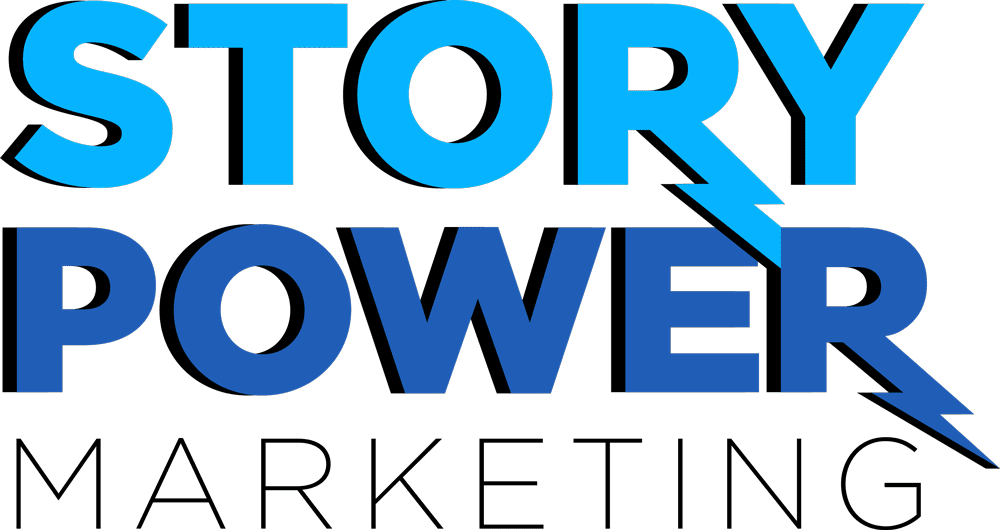Why Simple Words Sell More Than Big Ones

Have you ever been in a conversation with someone who peppers their speech with big, fancy words — just to show the world how smart they are?
Yeah. I run into that person a lot. And, I have to admit (gulp!) I used to be that guy.
I used to love big, fancy words — just because they were big and fancy. The bigger and fancier, the better. I used my dictionary and thesaurus to find big, fancy words to replace small, simple words.
Small and simple words are for small and simple people, I thought. Smart and sophisticated people use big words.
I’m over that.
In marketing, smart people choose the RIGHT word. And the right word is often small and simple. Here’s why:
If you want to connect with your audience, your words have to mean something to them. And if they need a dictionary to look up your big, fancy words, you won’t connect with them.
Last month, I listened to one of those podcasts that recommends new music. A critic said this about a song: “It’s casual profundity.”
The co-host agreed.
My reaction: “What the heck is “casual profundity!?”
I looked it up. According to Webster’s, profundity means “Intellectual depth” or “the quality or state of being profound or deep.”
Ahhh. Profund-ity equals profound. I get it now.
But I still don’t get what it means to describe a song as “casual profundity.”
This podcast was on National Public Radio. NPR attracts listeners who are smart and sophisticated, or who like to think they are.
So maybe it makes sense for an NPR critic to describe a song as “casual profundity.” Maybe most NPR listeners know “profundity” without reaching for the dictionary. Maybe NPR listeners hear those big words, and it reminds them that they have big brains. Or maybe many of those big-brained NPR listeners nod along with the review — even if they don’t know what the big words mean.
Back in my big-word days, I would have nodded along like that. I would never admit not knowing “profundity.”
But no longer. I admit it now: “I don’t know “profundity.”
Gimme small words. Gimme simplicity.
If I ran a radio network that catered to people who like to think of themselves as smart, I might view this differently.
But I’m a marketer. And I help people deliver their stories clearly and concisely. So prospects get it. So prospects respond. So prospects buy.
Marketers don’t want prospects to think, “What the heck does that mean!?” That’s bad for sales.
So when you write your business stories, when you write sales copy, look out for those big words. Get rid of ‘em — unless no other word will work.
There’s often a simpler word. A shorter word. A more widely-known word.
In most cases, you can find a simpler, shorter, widely-known word that means the same as the big word. The small word paints the same picture, tells the same story.
And because it’s a small word, not a big word, more people understand the story. Fewer people will say “What the heck does that mean?!”
That’s the point. When you tell a story, you want it to connect.
Don't go away yet..
p.s. Coaches, authors, and consultants hire me to power-up their creative content and storytelling to captivate prospects, stand-out and book more business.
Whenever you're ready, here are several ways I can help you become a storytelling stand-out so you'll land more clients without pitching and prodding:
1) Get the Story Power Profit Pack -- 52 Strategies, Tips, and Tactics to Transform Your Content from Ignored to Adored.
2) Watch the free, 7-minute Micro-Training: “The 3 Most Important Storytelling Keys to Captivate Prospects and Inspire Them to Act -- Without Pitching and Prodding.”
3) Become a Story Power VIP: Master how to discover, assemble, and deliver business-building stories. Twice-monthly live masterclasses. Members-only content. One-on-one feedback and consulting sessions. And more… If you'd like to learn more about our VIP program, just reply to this email and put "Story Power VIP" in the subject line. I’ll contact you with more details.
4) Work with me one-on-one: If you’re interested in working directly with me -- to discover, assemble, and deliver powerful, business-building stories -- simply reply to this email and change the subject line to "Private Client." Tell me a little about yourself, your business, and what you'd like to accomplish, and I'll reply to discuss options.
5) Invite me to speak at an event: I can tailor a presentation that meets the specific needs of your organization. Informative. Entertaining. Virtual or live. Potential for continuing education credits when applicable for your group. If interested, reply to this email and change the subject line to “Speaking Engagement.” I’ll circle back to discuss the possibilities.
Want to get great content like this...
...delivered straight to your inbox?
Join our email list...
Post Categories
Previous Post
Next Post
